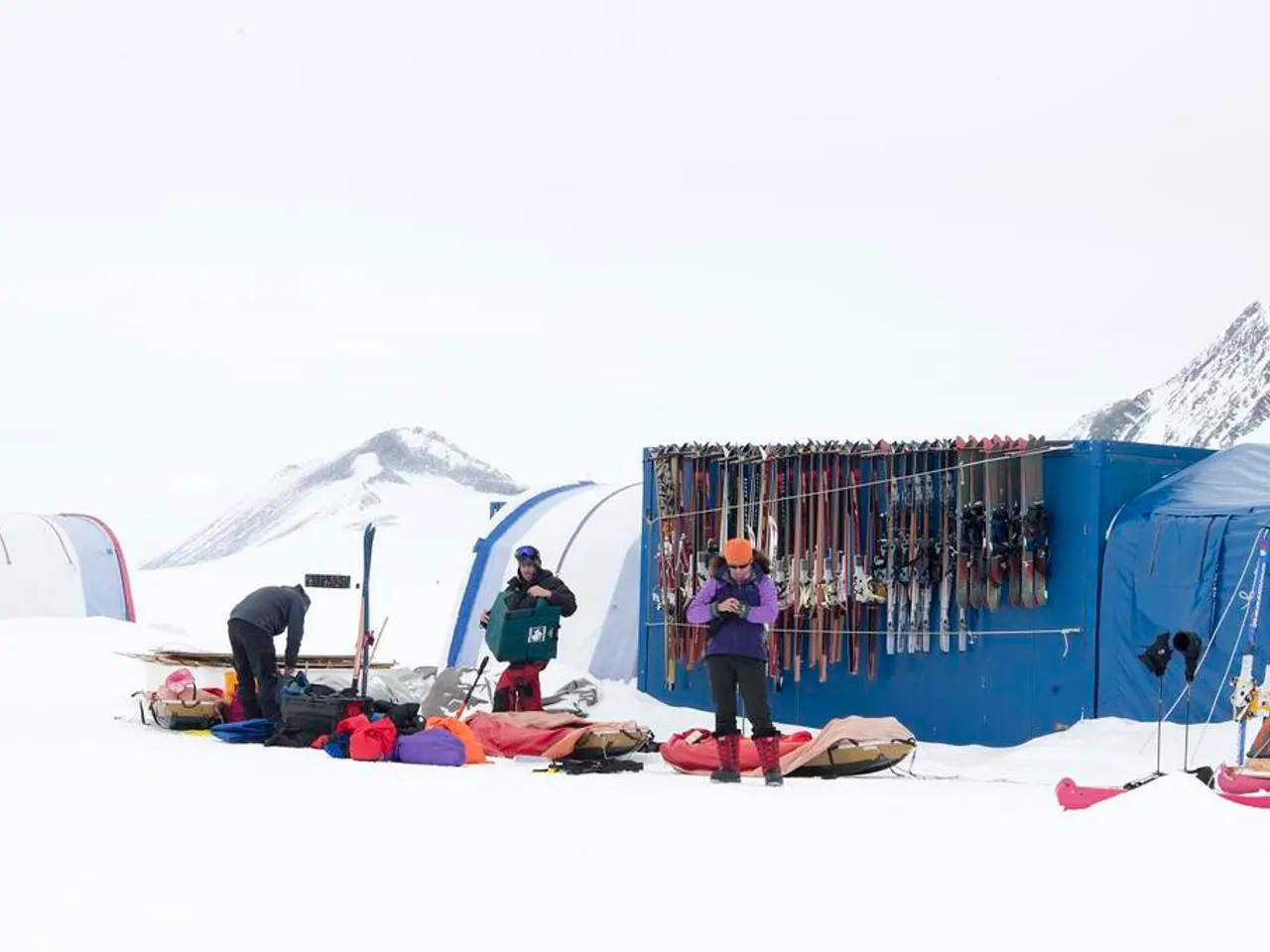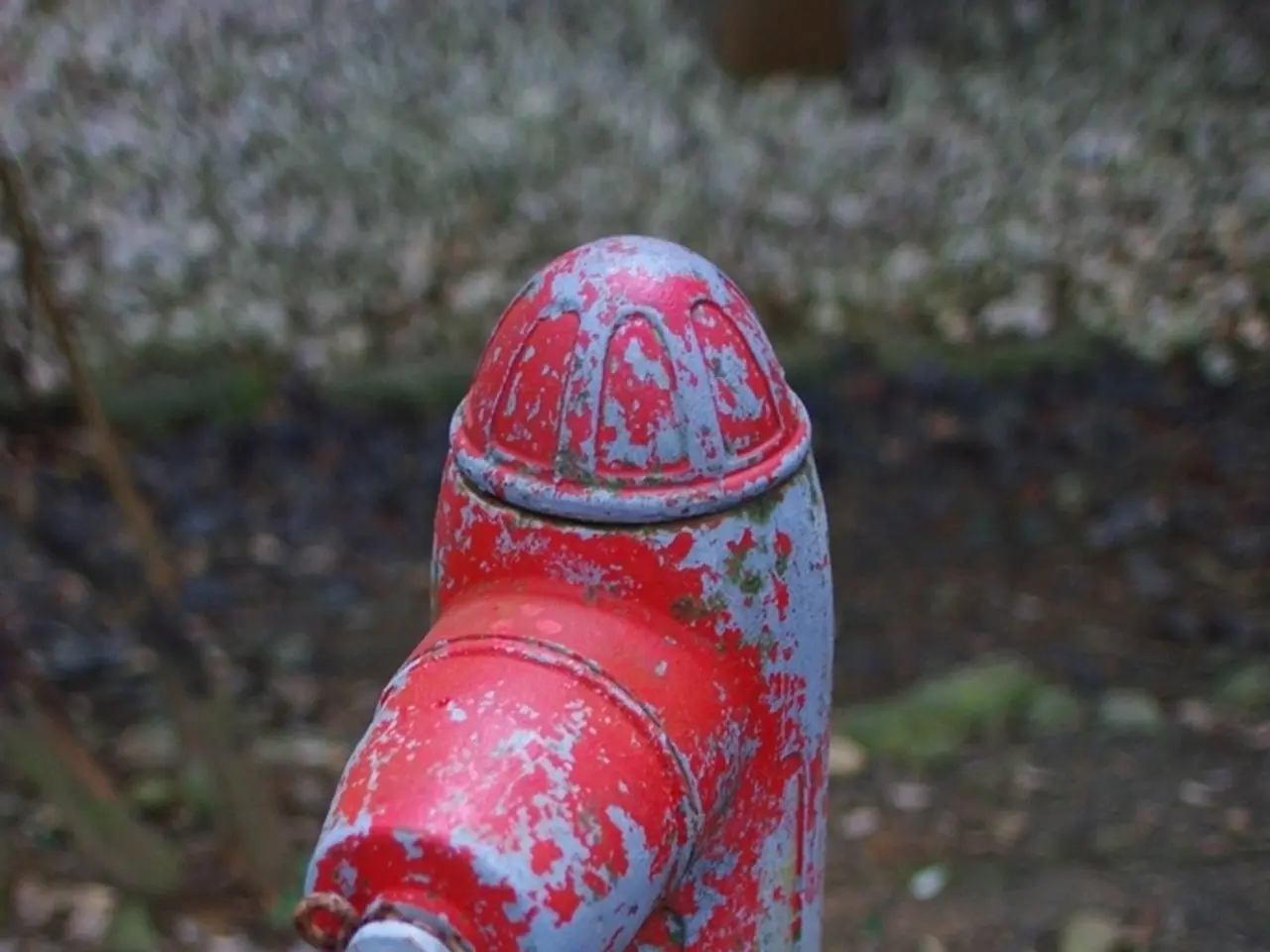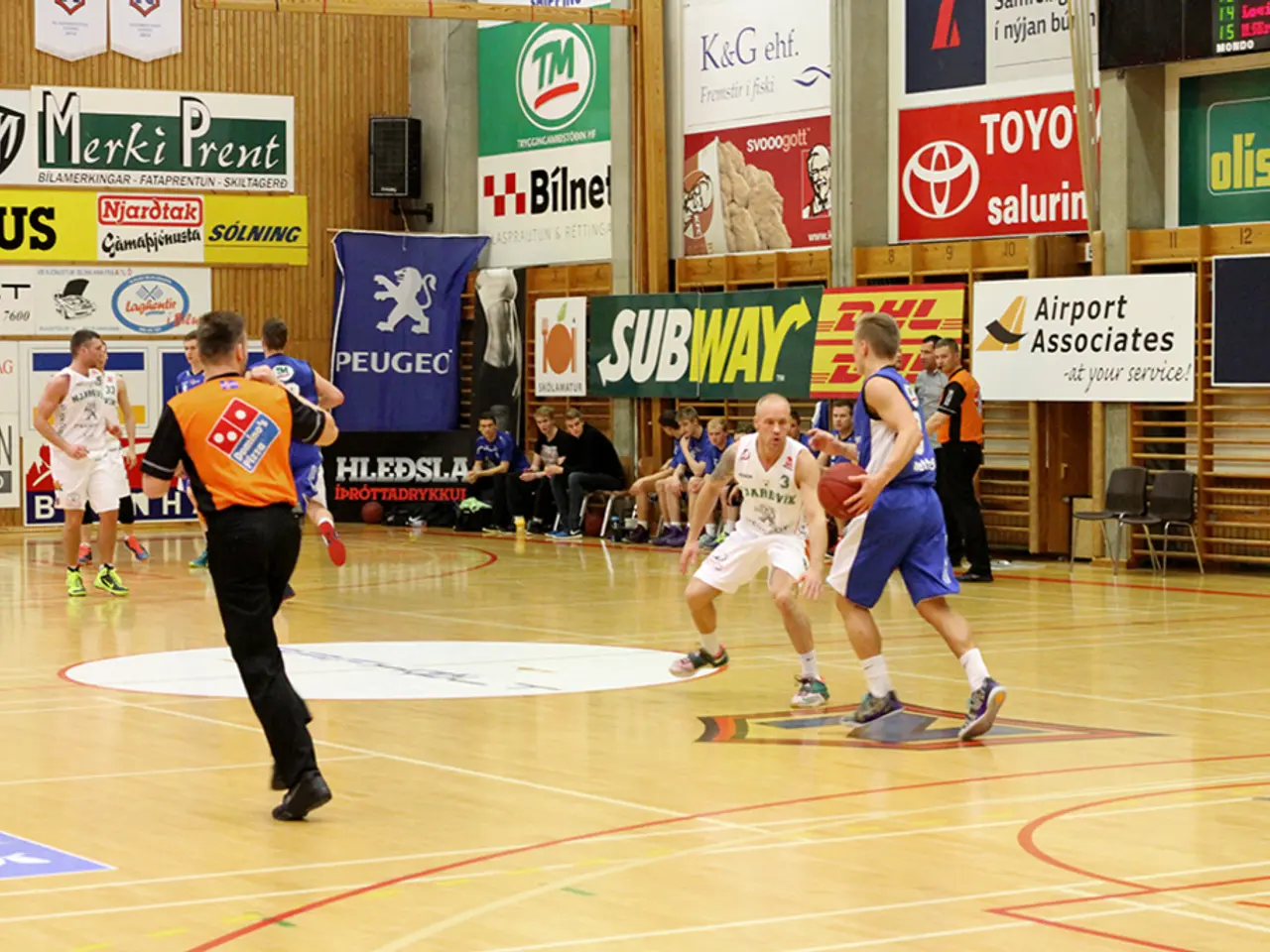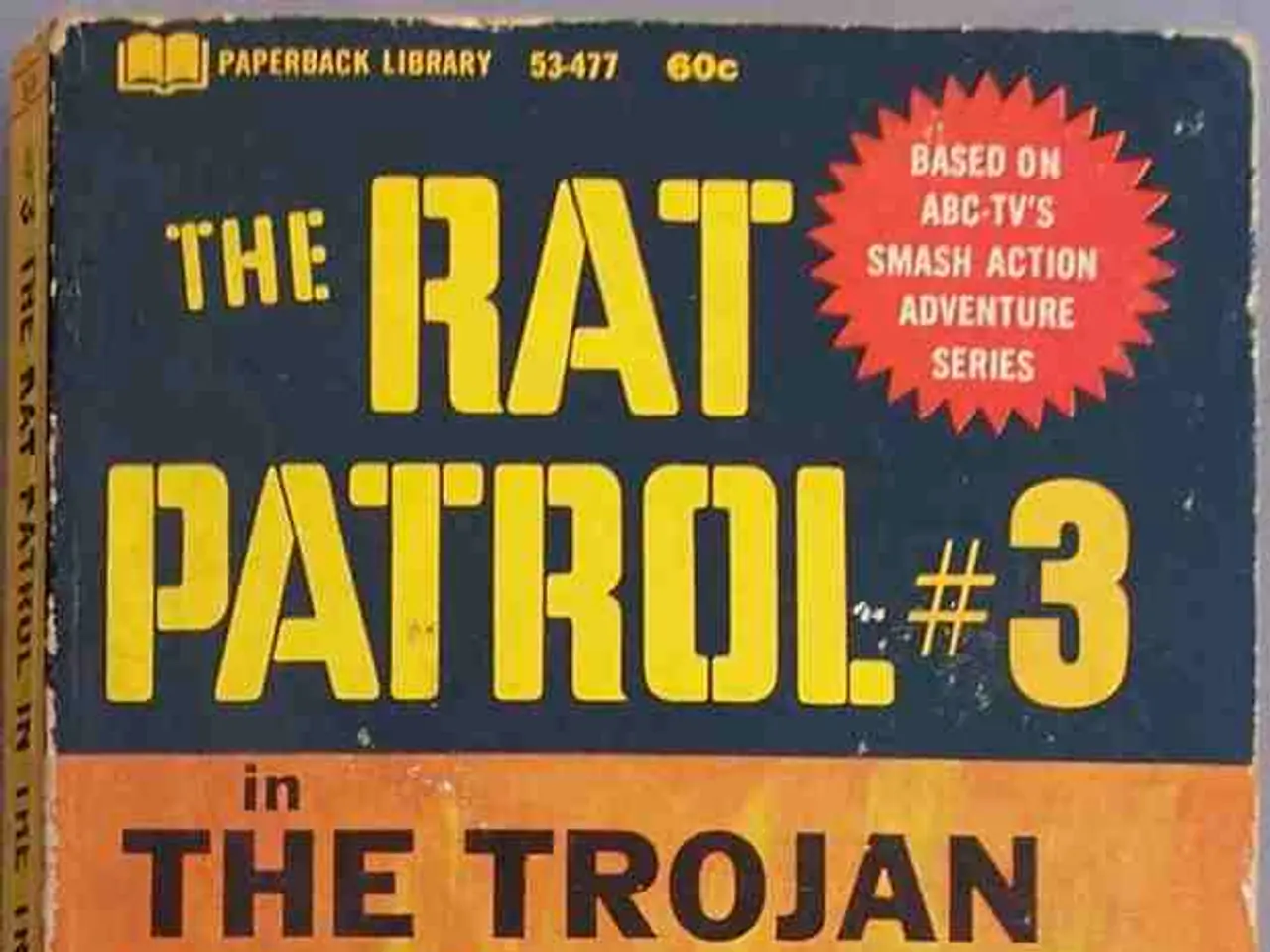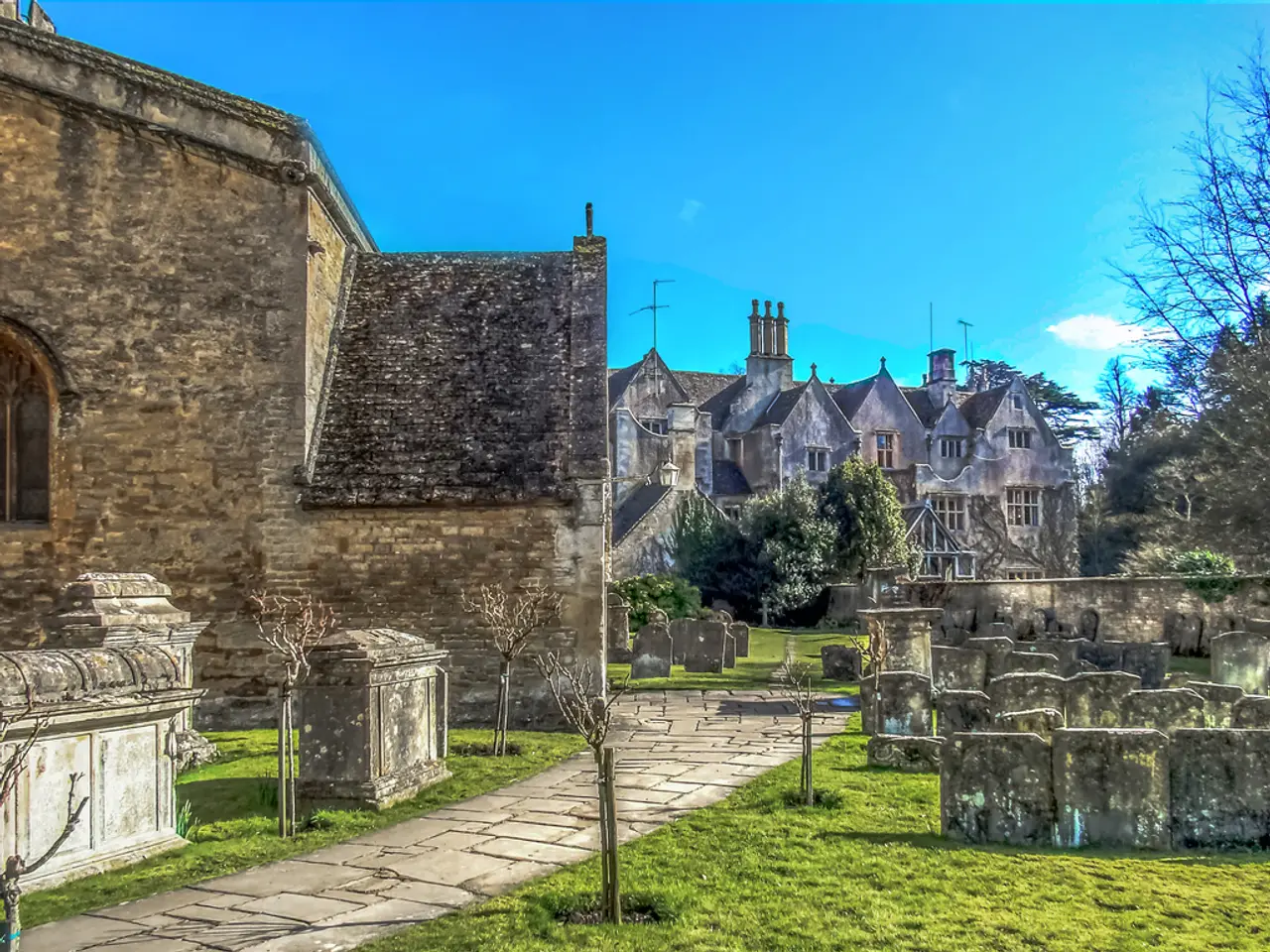Early-season ski mishap leads to urgent safety advisory
In the wake of the tragic skiing accident that claimed the life of experienced skier and mountaineer Ian Malcolm Howat on Mt Ruapehu in June 2022, safety recommendations for backcountry skiers, particularly during early winter, are being emphasised.
According to a report by the Mountain Safety Council (MSC), psychological factors such as commitment, familiarity, and 'get-home-itis' may have influenced Ian's decisions. The report also noted that he was carrying a large backpack, which could have affected his balance in the challenging terrain.
The accident occurred on a route within the Whakapapa Ski Field, which had not yet opened for the season. MSC highlighted the importance of staying within designated backcountry access points and rules at ski areas. Ian's companion may have been aware of his accident sooner if they were skiing together, as a search and rescue operation was activated when he failed to arrive at the Tararua Tramping Club Lodge.
MSC stressed the need for thorough preparation, cautious terrain choices, and appropriate avalanche safety practices. Key safety recommendations include:
- Complete an avalanche safety course (at least Level 1) to learn how to use critical equipment such as avalanche beacons, shovels, and probes effectively.
- Check daily avalanche forecasts before heading out since early winter snowpacks can be shallow, icy, and variable, leading to unstable and reactive avalanche conditions.
- Be aware of common early-season hazards such as visible rocks, icy surfaces, and wind slabs, which are often the cause of avalanches in maritime climates like New Zealand.
- Carry essential safety gear, including an avalanche beacon, probe, shovel, and if possible, an airbag pack, which has been shown to improve survival rates in avalanches.
- Travel conservatively, especially in early winter, and do not be misled by previous skiers’ tracks; each snowpack is different and can change rapidly.
- Never ski alone; always stay within sight and voice of your partner and follow designated backcountry access points and rules at ski areas.
- Dress in layered, weather-appropriate clothing and carry high-energy snacks to maintain stamina on long tours.
- Use guided services or consult experienced backcountry guides when possible, as they provide safety briefings, gear advice, and logistical support for navigating complex alpine conditions.
- Understand and follow the National Ski Areas Association’s Responsibility Code and local backcountry protocols, including respecting closures and signage.
With similar early-season conditions in many alpine areas across Aotearoa, particularly in the North Island, MSC is urging backcountry users to plan trips with extra care. The team at the website extends their deepest condolences to the family and friends of Ian Howat.
Coroner Katharine Greig concluded that Ian died from a chest injury sustained in the skiing accident. She endorsed MSC's recommendation to check the NZ Avalanche Advisory to understand the current conditions when recreating on Mt Ruapehu. These measures collectively help mitigate the elevated risks in early winter backcountry skiing and address challenges highlighted by incidents such as the Mt Ruapehu accident. Consistent vigilance, education, and proper equipment are essential to enhancing safety in variable and potentially dangerous snow conditions.
- In light of the Mt Ruapehu tragedy, sports enthusiasts are advised to take avalanche safety courses (at least Level 1) to learn how to use critical equipment effectively.
- In early winter, sports participants should avoid skiing alone and follow designated backcountry access points and rules at ski areas to ensure safety.
